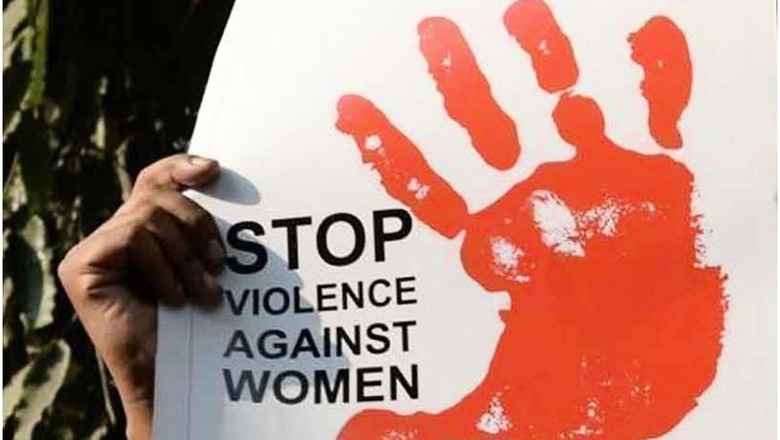
views
One question that I have been repeatedly asked over the last two years is, ‘what is the future of the #MeToo movement.’ To different people I have tried to give a different answer. With each response, I have attempted to be more intelligent than the previous one, but all through that, Mohammed Rafi’s song from the movie Haqeeqat played in my head—Kar Chale Hum Fida Jaan-o-Tan Saathiyo, Ab Tumhare Hawale Watan Saathiyo.
I am not being pompous or flippant here. It is bad enough that such a question is asked. Worse is that women ask such questions. Not only is this lazy journalism, it betrays poor understanding about what #MeToo is, shorn of periodic news-making. While ‘Me Too’ has been an enabler that encourages women to not let their oppressors hide behind the smokescreen of complicit silence, the hashtag has ensured a virtual safe place. Used together, they are a collective of women across geography, economics and religion, built on the three pillars of mutual trust, mutual understanding and mutual support. Of course, a collective is as good or effective as its members.
What do I mean by a collective? A physical organisation with a hierarchy?
No. I view it as a consciousness which is internalised to such an extent that resisting injustice becomes second nature. Be it injustice to our own self or to someone we witness. Resistance is not gender-specific. It is intention-specific. In that sense, MeToo becomes a consciousness for both women and men who understand that violation comes in different shapes and forms. But has the same chilling impact: Snatching away the agency of the victim. MeToo enables each victim to reclaim that agency and along with that her voice, so that she rises above victimhood to become a proud survivor. And a role model too.
When we refer to #MeToo as a movement, we become complicit in diminishing its efficacy in two ways. One, we put an expiry date to it; and two, we put the burden of leadership on a few, thereby abdicating our own responsibility. Two years back, a senior journalist, and a woman to boot, wrote to me on Twitter that I fancy myself as the leader of the #MeToo movement in India. I wrote back telling her that all of us are leaders of our own stories. We just have to take ownership of our stories and not let others tell them for us.
This has been my biggest learning in the last two years. Learning to distinguish between power and empowerment. Power is either given to you or you inherit it. Empowerment is the self-belief that grows inside you. I realised that being in the position of power or influence does not necessarily make one an empowered woman. An empowered woman may even be powerless in a traditional hierarchy, but as long as she has the courage to take ownership of her decisions and be ready to bear the consequences, she is her own person. She can stand up for herself and perhaps for those who are unable to do so on their own.
ALSO READ| Priya Ramani’s Victory is a Significant Milestone But There’s Still A Long Road Ahead Towards Making Workplaces Safe for Women
Decades before there was consciousness about workplace sexual harassment, a barely literate and traditionally powerless woman, Bhanwari Devi, stood up for her rights. It was a measure of her empowerment that she understood that her violation was not par for course. That she should hold her violators accountable, whatever the cost to her life and liberty. Nobody then asked if she had started a movement. Because what she had done then was light a lamp. Or, may be poured a little oil in the lamp that was perhaps lit by other women in other parts of the world decades or centuries ago.
The MeToo and its preceding hashtag is nothing but a tent over that lamp to ensure that it never goes out. But the tent can only provide protection to the lamp from external winds. It still needs sustainment. It needs to be nurtured. It needs oil in the form of women invested in its survival. After all, women’s struggle for claiming their rights, their bodies, their voices, their lives have been going on for centuries. Women’s resistance to the manipulation of their stories is a continuum. And if women do not respect this, who would.
A few drops of oil were poured into this lamp by the recent judgement in the defamation case against Priya Ramani. In this silly season of judicial naïveté, the magistrate hearing the case has been refreshingly sensitive and empathetic; apart from being as just as he could. To the specific issue of defamation, he said that a man’s reputation cannot be greater than a woman’s honour. However, on the larger issue of sexual harassment, the magistrate rightly pointed out that harassment usually happens behind closed doors. Clearly, it wouldn’t happen if there were witnesses to it. Hence, the victim of harassment cannot be expected to produce witnesses to support her calling out of her predator.
By lifting the burden of proof from a woman’s head, the magistrate underscored the importance of a woman’s testimony against her tormentor. Despite the magistrate’s couching of the verdict in religious symbology that reinforces patriarchy, the fact is, this is the most progressive we have been in recent times. At a time when judges still ask rapists to marry their victims or say that there is no molestation if there is no skin contact, this judgement needs not only standing ovation but celebration too.
ALSO READ| When a Victim Becomes Accused: The Biggest Takeaway From Priya Ramani vs MJ Akbar Verdict
It is now up to us to ensure that this judgement is embraced in our homes and workplaces or wherever women find themselves vulnerable. Statistics show that women are the last to enter and the first to exit the workplace. While an earning woman’s contribution to her family income and the nation’s economy is indisputable, the role financial independence plays in her empowerment cannot be undermined either.
Whatever be our cynicism about celebrating one day in the year as Women’s Day, let us not forget that this commemorates the efforts of those who shone light on our paths. To honour their struggles, their sacrifices, it is imperative that we do the same to those who will come after us. A small step towards that would be to not accept anything less than safe work environment and fair treatment. And let’s start trusting each other’s stories.
Read all the Latest News, Breaking News and Coronavirus News here




















Comments
0 comment